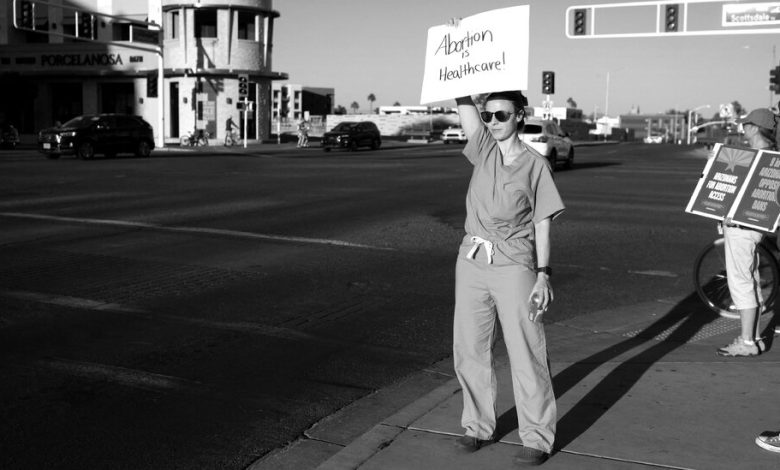The Smothering of Abortion Rights Reveals Something Else About Republicans

Last Monday, Donald Trump said that abortion rights were best left to the states. “The states,” he said, “will determine by vote or legislation or perhaps both, and whatever they decide must be the law of the land. In this case, the law of the state.”
The next day, as if answering a captain’s call to fire from the line, the Republican-led Arizona Supreme Court, in an uncanny coincidence, revived a 160-year-old abortion ban, with no exceptions for either rape or incest. In a 4-to-2 decision, the court held that the 1864 ban was “enforceable” and not superseded by more recent legislation. Tasked with reconciling the state’s abortion laws, some more permissive than others, the Arizona court chose the most restrictive option available — one that ties the hands of Arizona residents with the restraints of yesteryear, forged by the settlers of a not-yet-state in the middle of the 19th century.
Beginning next week, a law once thought unenforceable will govern the lives of millions of people who had neither a say in its creation nor, for that matter, its resurrection.
A few thoughts come to mind here.
It does not escape my attention that this law owes its rebirth to an effort by Doug Ducey, then the governor, to expand the Arizona Supreme Court’s membership from five to seven justices. Ducey then stacked this enlarged court with reliable conservatives.
All four of the justices who were part of the majority in last week’s abortion ruling were appointed by Ducey. One of them, Clint Bolick, is a longtime conservative legal activist and the author of “David’s Hammer: The Case for an Activist Judiciary.” He represents a type of judge that the legal scholars Robert L. Tsai and Mary Ziegler call a “movement jurist,” defined as “someone who is socially embedded in movement-aligned networks outside of the formal legal system and is willing to use a judge’s tools of the trade in the service of a movement’s goals.” (Another Ducey-appointed justice, William G. Montgomery, once said that Planned Parenthood was “responsible for the greatest generational genocide known to man.” He recused himself from this case.)
The United States Supreme Court’s decision to overturn Roe v. Wade was not inevitable but once it was handed down, the Arizona Supreme Court was practically fated to move the state’s abortion laws in a reactionary direction. (Which makes it striking that Ducey would express dismay: The ruling, he wrote on X, was “not the outcome I would have preferred.”)



